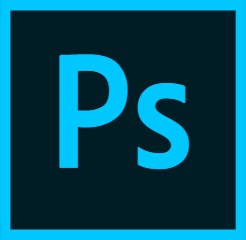Table of Contents
Introduction
Since Photoshop CS6, Adobe has been continuously improving and expanding support for GPU acceleration in Photoshop. Since both hardware and software is constantly evolving and changing, we like to periodically evaluate how well Photoshop is able to utilize various video card models.
In this article we will be looking at the performance of Photoshop 2017 with the current Quadro video cards from NVIDIA. While not the most commonly used models due to their relatively high price, they are a requirement if you want support for 10-bit displays. If you do not need 10-bit display support, we recommend checking out our Photoshop 2017 NVIDIA GeForce GPU Performance article to see how the various GeForce cards perform.
Test Setup
To see how each of the Quadro cards perform in Photoshop, we used the following workstation hardware and software:
| Testing Hardware | |
| Motherboard | Asus PRIME Z270-A |
| CPU | Intel Core i7 7700K 4.2GHz (4.5GHz Max Turbo) 4 Core |
| RAM | 4x Crucial DDR4-2400 16GB (64GB total) |
| Hard Drive | Samsung 850 Pro 1TB SATA 6Gb/s SSD |
| OS | Windows 10 Pro 64-bit |
| Software | Photoshop 2017.0.1 |
This hardware is essentially what we use in our Photoshop Recommended System and should be an excellent platform for our testing. The Quadro cards we are testing are a mix of Maxwell and Pascal based cards, but with the exception of the M6000 they are all the latest cards available at each price point. The M6000 was replaced by the P6000, but we decided to include it as a way to compare the older Maxwell architecture to the newer Pascal architecture. The different video cards we will be testing are:
| Test Video Cards | |
| Intel HD 630 1GB (Integrated Graphics) | NVIDIA Quadro K620 2GB |
| NVIDIA Quadro M2000 4GB | NVIDIA Quadro M4000 8GB |
| NVIDIA Quadro M6000 24GB | NVIDIA Quadro P5000 16GB |
| NVIDIA Quadro P6000 24GB |
To benchmark the performance difference between each card we timed how long it took to complete various actions that are supposed to be able to utilize the power of the video card. These actions were applied to a 360MP image (21500×16718) in order to ensure that they took long enough for us to get accurate timing results.
The specific actions we tested are:
- Field Blur
- Iris Blur
- Tilt-Shift Blur
- Smart Sharpen
- Render – Tree
- Lighting Effect
- Camera Raw Filter
- Image Size (Preserve Details)
Benchmark Results
If you take a even a quick look at the charts above, it is obvious that the results are very polarized. Some actions like the various blurs and "Smart Sharpen" show decent performance gains the the different Quadro models. However, others like "Render – Tree" and "Lighting Effect" show a good performance gain from using a discrete GPU, but not much of a reason to get a higher end card.
Interestingly, the "Camera Raw Filter" and "Image Size (Preserve Details)" actions show almost no difference between integrated graphics and any of the GPUs we tested. This means that from a performance standpoint it shouldn't matter what GPU you use for these actions.
Conclusion
Since the performance benefit from the different GPU models changes drastically depending on the specific action, we considered not having an overall average chart in our conclusion. However, since most Photoshop users perform a wide variety of actions throughout the course of their work we decided that it is still a valid way to present our conclusions. Just keep in mind that if there is a specific action that you hate waiting on and want to optimize your system for, this average is not going to be as accurate at looking at the results of just that singular action.
Looking at the average, it is clear that there is a performance advantage to using a higher end Quadro card although the performance gains are fairly small from card to card. Due to the pricing structure of these cards, it means that in most cases spending about twice the amount of money on the GPU will result in about a 5% increase in performance.
If you need to use a Quadro card (likely for the 10-bit display support) and are on a tight budget, we would still advise using at minimum a Quadro M2000 4GB if not the M4000 8GB card. Even if you don't feel that you need the extra performance from one of these cards, the 4-8GB of VRAM can be very useful for your system as a whole. Photoshop itself won't need it unless you work with very large images – like the 360MP image we used in our testing – but it does allow you to comfortably use multiple monitors or a 4K monitor without any problems. If you want to use multiple 4K monitors, however, you definitely should use the M4000 8GB if not the Quadro P5000 16GB to ensure you have enough VRAM and raw power to drive those displays.
Puget Systems offers a range of powerful and reliable systems that are tailor-made for your unique workflow.

